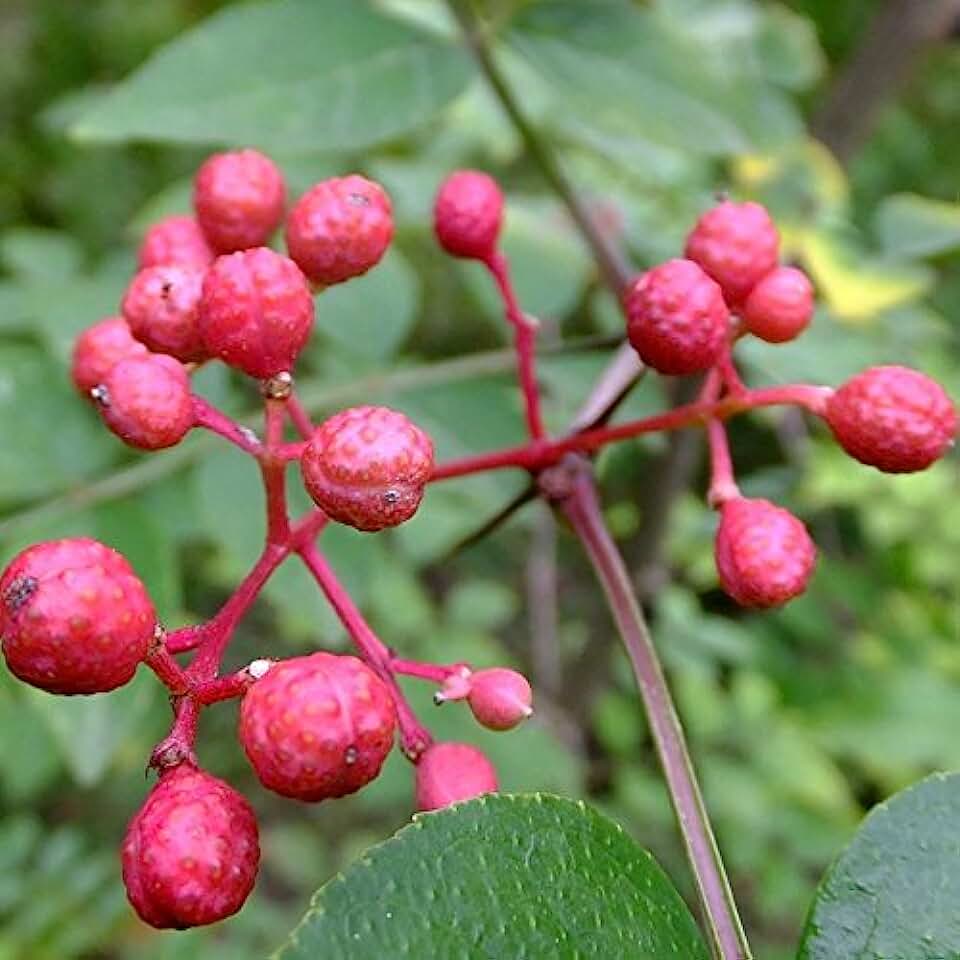Prickly Ash, also known as Zanthoxylum americanum, is a plant native to North America. It has a long history of traditional use in herbal medicine, particularly among Native American tribes. Prickly Ash is primarily known for its medicinal properties and is used to treat a variety of health conditions. In this comprehensive guide, we will explore the benefits, dosage recommendations, and potential side effects of Prickly Ash.
Benefits of Prickly Ash:
- Digestive Health: Prickly Ash has been traditionally used to promote digestive health. It stimulates the production of digestive enzymes and increases the secretion of gastric juices, which can aid in the digestion of food. It is often used to alleviate symptoms such as indigestion, bloating, and flatulence.
- Circulation and Blood Flow: Prickly Ash has vasodilatory properties, meaning it helps to widen blood vessels and improve circulation. This can be beneficial for individuals with poor circulation or conditions such as Raynaud’s disease. Improved blood flow can also aid in the delivery of oxygen and nutrients to various parts of the body.
- Joint and Muscle Pain: Prickly Ash possesses analgesic and anti-inflammatory properties. It is commonly used topically in the form of creams or oils to relieve joint and muscle pain associated with conditions like arthritis, rheumatism, and fibromyalgia. It may also help reduce swelling and inflammation in affected areas.
- Oral Health: Prickly Ash is often used as an ingredient in natural oral care products. It has antimicrobial properties that can help combat oral bacteria, reduce plaque formation, and prevent gum disease. Some people also use Prickly Ash bark as a natural remedy for toothaches and mouth ulcers.
- Respiratory Support: Prickly Ash has been used to alleviate respiratory conditions such as bronchitis, asthma, and congestion. It acts as an expectorant, helping to expel mucus from the respiratory tract and relieve coughs. Additionally, its antibacterial properties may help fight respiratory infections.
Dosage Recommendations:
Prickly Ash is available in various forms, including capsules, tinctures, extracts, and topical preparations. Dosage recommendations may vary depending on the specific product and the condition being treated. It is important to follow the instructions provided by the manufacturer or consult a healthcare professional for personalized dosage guidance. As a general guideline, the following dosages have been suggested:
Capsules: Take 1 to 2 capsules (500-1000 mg) up to three times a day with meals.
Tinctures: Take 1 to 2 ml of tincture diluted in water, up to three times a day.
Topical Use: Apply a small amount of Prickly Ash oil or cream to the affected area and gently massage it in. Repeat as needed.
It is crucial to start with the lowest effective dose and gradually increase if necessary, while monitoring your body’s response. It’s always advisable to consult a healthcare professional before starting any new herbal supplement or remedy.
Potential Side Effects:
Prickly Ash is generally considered safe for most individuals when used as directed. However, some people may experience mild side effects, which could include stomach upset, diarrhea, or skin irritation when using topical preparations. These side effects are usually temporary and subside on their own. If you experience any severe or persistent side effects, discontinue use and seek medical attention.
It’s worth noting that Prickly Ash may interact with certain medications. It can enhance the effects of blood thinners and anticoagulant drugs, potentially increasing the risk of bleeding. If you are taking any prescription medications or have underlying health conditions, it is essential to consult with a healthcare professional before using Prickly Ash to avoid any potential interactions or adverse effects.
Pregnant and breastfeeding women should also exercise caution and consult their healthcare provider before using Prickly Ash, as there is limited research on its safety during these periods.
Conclusion:
Prickly Ash is a versatile herbal remedy with a wide range of potential health benefits. From aiding digestion and promoting circulation to relieving joint pain and supporting oral health, Prickly Ash has been valued in traditional medicine for centuries. However, it is important to use Prickly Ash responsibly and consult a healthcare professional for personalized advice. By understanding the benefits, following proper dosage recommendations, and being aware of potential side effects, you can make informed decisions about incorporating Prickly Ash into your wellness routine.

